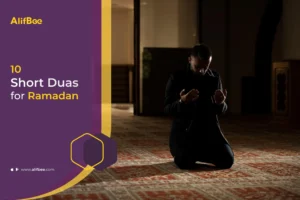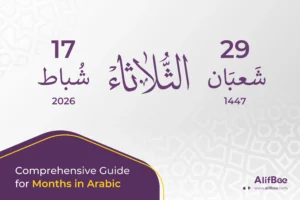Word of the Day
Nās
ناس
Welcome to another word in our Arabic Word of the Day series!
Today, we will learn the three-letter noun ناس /Nās/.
Main Meaning
The word ناس /Nās/ means “people” and it is a plural noun. The singular form is إنسان /Insān/ and it means a person. The root word of the word ناس is نَوَسَ /Nawasa/, which means “a dangling object”.
Look at how the word is used in these examples.
People gathered at the football field.
Ijtamaʻa alnaaāsu fī malʻabi kurti alqadami
اِجتَمَعَ النَاسُ في مَلعَبِ كُرةِ القَدَمِ
Treat people the way you like to be treated.
ʻĀmil alnaaās bimā tuḥib an yuʻāmilūka bihi
عَامِل النَاس بِمَا تُحِب أنْ يُعَامِلُوكَ بِهِ.
Collocations
The word /Nās/ ناس collocates with other words, forming structures with specific meanings. Look at three collocations with the word ناس and pay attention to how they are used in sentences. Also, keep in mind that collocations sometimes create idiomatic expressions where the combined meaning of the words is different from the meaning of the individual words.
Son of (decent) people
Ibnu Nās
ابنُ ناس
This positive expression means someone is from a respectable and decent family. The literal translation is “The son of [decent] people.” This phrase is commonly used to describe someone with a respectable background, often emphasizing good family values and upbringing.
See the following example:
A respectable young man proposed to a girl.
Taqadaama likhiṭbti alfatāti shābbun ibnu Nās
تَقَدَمَ لِخِطبةِ الفَتاةِ شاب اِبنُ ناس
To spread among people (like a rumour)
Jará ʻalá alsinat al-nās
جَرَى على ألسنة الناس
This expression is used when something, such as a rumor, spreads widely among people. The literal meaning is “It ran on people’s tongues,” indicating something widely discussed. This phrase is commonly used for rumors, news, or information that quickly becomes widespread.
Look at the following example:
It has spread among people that the city will witness grand celebrations over the weekend.
Jará ʻalá alsinati an-nāsi anna al-Madīnata satashhadu iḥtifālātin kabīratin fī nihāyati al-Usbūʻ
جَرَى على ألسنة الناس أن المدينة ستشهد احتفالات كبيرة في نهاية الأسبوع.
Surat An-Nas
Sūratu alnās
سُورَةُ النَاسِ
Surat An-Nas (or Mankind) is the 114th and final chapter (Surah) of the Quran. It is a short yet profound prayer seeking protection from evil and harm, emphasizing reliance on Allah as the Lord of all people (Mankind). This Surah is often recited in daily prayers for its powerful message and protection.
Derivations
Look at four common Arabic words derived from the word root نَوَسَ /Nawasa/:
Humane
Insānī
إنْسَانِيّ
Humans
Ins
إنْس
Keeping someone company.
Ānasa
آنَسَ
Companion
Muʼnis
مُؤنِس
In Quran
In the Holy Qur’an, the word ناس can be found in Surat Fater, where Allah the Almighty speaks to people, saying:
"يَا أَيّهَا النَاسُ أَنْتُم الفُقَرَاء إِلَى الله" - سورة فاطر ١٥
Yā ayyuhā alnaaāsu antum alfuqarāʼ ilá Allāh
"O mankind! you are those in need of Allah, while Allah is the Free of need, the Praiseworthy. " Fater: 15
In Poetry
In the Holy Qur’an, the word ناس can be found in Surat Fater, where Allah the Almighty speaks to people, saying:
خُذِ النَاسَ أوْ دَعْ إنَّما النّاسُ بالنّاسِ وَلابُدَّ في الدُّنْيَا من النّاسِ للنّاسِ
Khudhi alnaaāsa aw daʻ innamā alnnāsu belnnāsi walābudda fī alduunyā min alnnāsi llnnāsi
Take people or leave them, for indeed people rely on people; and in this world, people need people.
Let’s look at the verse carefully. The first part says “خُذِ النَّاسَ أوْ دَعْ” (Take people or leave them). This suggests a choice regarding people. The poet is saying you can either take people into your life or choose to leave them.
He continues, “إنَّما النَّاسُ بالنَّاسِ” (People are only with people). This line emphasizes the idea that people exist in relation to one another. Human existence is intertwined and dependent on social connections.
Finally, the last part comes to stress the same point, “ولابُدَّ في الدُّنْيَا من النَّاسِ للنَّاسِ”(And there must be, in the world, people for people). This part reinforces the necessity of human relationships in the world. It suggests that people need each other for the world to function.
In summary, this verse highlights the importance of human connections and relationships. It presents the idea that, ultimately, people are meant to be with other people, and the choice lies in whether to embrace those connections or not.
Synonyms
In Arabic, the word /Nās/ ناس has two synonyms, and they mean the same thing, human beings or mankind.
Human beings
Bashar
بَشَر
mankind
Khalq
خَلْق
Look at the following examples and notice the similar meanings they all have.
Pleasing all people is an unattainable goal.
Riḍā alnnās ghāyah lā tudrak
رِضَا النّاس غَايَة لا تُدْرَك
Pleasing all human beings is an unattainable goal.
Riḍā albashar ghāyah lā tudrak
رِضَا البشر غَايَة لا تُدْرَك
Pleasing all mankind is an unattainable goal
Riḍā alkhalq ghāyah lā tudrak
رِضَا الخَلْق غَايَة لا تُدْرَك
Final word
I hope you liked today’s Arabic word. Include it in your everyday conversations and keep practicing it in different situations.
Keep expanding your Arabic vocabulary by reading our blog posts filled with new words and insights.
For more hands-on practice, our Arabic learning app is the perfect tool to guide your journey.
See you soon for more Arabic fun!









